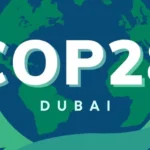ADB funds a potential waste management initiative as India sets out to make 100 cities garbage-free by 2026 by transforming sanitation practices, fostering resilience, and empowering communities
With a significant USD 200 million loan, the Asian Development Bank (ADB) is bringing much-needed life to India’s Swachh Bharat Mission-Urban 2.0. The mission’s bold objective is to eliminate waste from all Indian cities by 2026. The ADB effort is a dynamic plan to transform waste management in 100 cities across eight states, not just a cash support programme.
The WASH (Water, Sanitation And Hygiene) 2.0-Comprehensive Municipal Garbage Management in Indian Cities Programme is a large-scale initiative that aims to revolutionise sanitation practices in addition to garbage management. In managing municipal solid waste, ADB seeks to include global best practices, use state-of-the-art technologies, and promote climate- and disaster-resilient techniques.
In India’s quickly growing urban centres, municipal garbage management is a crucial issue, and ADB’s assistance is revolutionary. The comprehensive strategy calls for improving waste management facilities, empowering women in sanitation, and including the private sector. The goal is to make sure that 100 cities spread across eight states become models of cleanliness.
ADB Urban Development Specialist Alexandra Conroy emphasises the significance of the project. The goal of ADB’s programme is to promote a clean environment devoid of pollution and trash, not merely waste. For residents’ productivity, well-being, and health, access to high-quality urban services like water supply and sanitation is essential. These services also play a major role in the country’s sustained economic success.
The financial infusion from ADB isn’t just a cash injection; it’s a strategic allocation. Funds will go into upgrading and establishing waste management facilities, including bio-methanation and composting plants, managed landfills, material recovery facilities, and plastic waste processing units. Also, the funds will support the construction of communal toilets and urinals and the acquisition of sweeping equipment.
This program is more than just waste management; it’s about resilience, gender equality, and social inclusion. ADB is channelling an additional USD 3.15 million from various funds to bolster technical assistance, fortify financial management, and encourage city-to-city partnerships.
The all-inclusive plan takes a holistic approach and seeks to improve sanitation and waste management systems. It’s not just a top-down programme; it works with the business sector, promotes peer-to-peer learning, and actively incorporates urban municipal bodies. The efficient execution of solid waste and sanitation action plans throughout the city is ensured by yearly evaluations and progress reports.
In addition to infrastructure, the programme prioritises education. Waste segregation and collection procedures will be improved through community education and awareness initiatives as well as training for sanitation workers. With the help of ADB, India’s urban landscape will be transformed, one city at a time, not merely via financial assistance.






































































































































































































































































































































































































































































































































































































































































































































































































































































































































































































































































































































































































